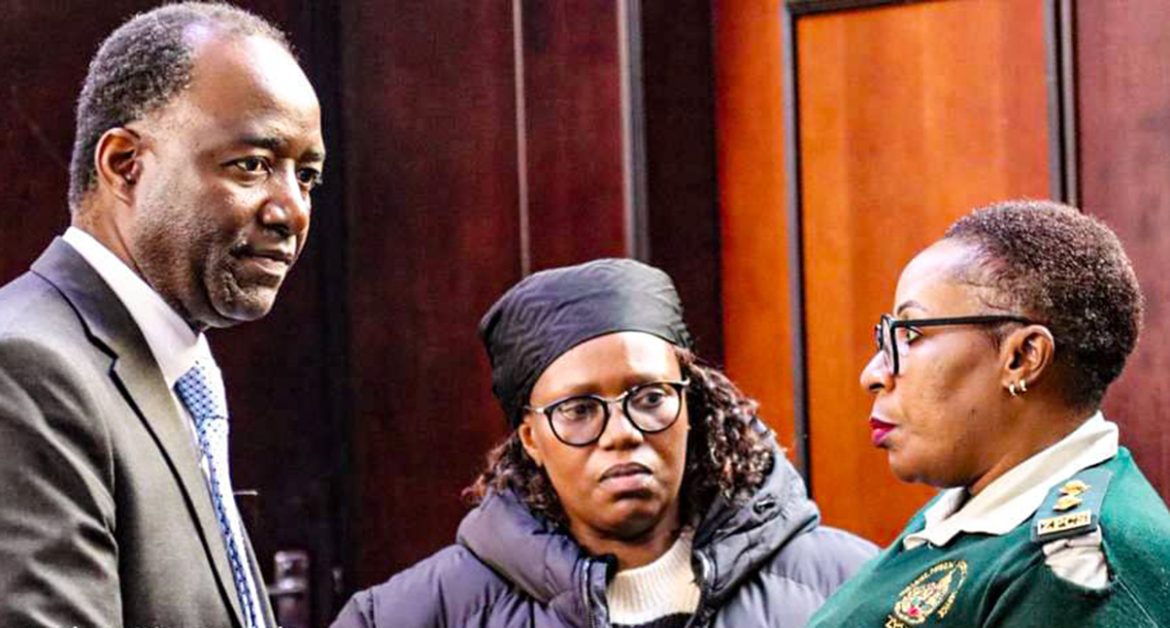Faith Zaba, the editor of Zimbabwe Independent, was arrested by Zimbabwean police on July 1, 2025, over a satirical article that allegedly insulted President Emmerson Mnangagwa. The article, published on June 27 under the newspaper’s popular Muckracker column, reportedly described Zimbabwe as a “mafia state” and accused the government of holding on to power by any means necessary.
Zaba, who is 55 years old, handed herself over to the police in Harare after officers made several visits to her newsroom at Alpha Media Holdings. Her lawyer, Chris Mhike, said she had been summoned multiple times and that she voluntarily went to the central police station to comply with the request. Despite submitting a warned and cautioned statement, Zaba was detained overnight and brought before a magistrate the following day.
In court, prosecutor Takudzwa Jambawu told the magistrate that Zaba’s article contained false information meant to incite hatred against President Mnangagwa, who also currently holds the position of Chairperson of the Southern African Development Community (SADC). The state requested more time to verify Zaba’s medical condition, leading the court to postpone the bail hearing to July 3.
Zaba’s lawyer raised serious concerns about her health, saying she was very ill at the time of her arrest and had submitted medical proof of her condition. He argued that detaining someone who is unwell not only violates her rights but also shows a lack of empathy on the part of the authorities.
The arrest has triggered an outcry from press freedom advocates and human rights organisations both inside and outside Zimbabwe. The Committee to Protect Journalists (CPJ), based in New York, strongly condemned the arrest and called for her immediate release. In a statement, CPJ Africa program coordinator Angela Quintal said the use of police resources to target journalists over satire reflects a fragile government that cannot tolerate public criticism.
The Zimbabwe Union of Journalists (ZUJ) also issued a statement condemning the arrest, saying it criminalizes journalism and threatens freedom of expression. ZUJ emphasized that satire is part of a healthy media environment and should not be treated as a crime. Several other organisations, including the Southern African Editors’ Forum (SAEF), the Zimbabwe National Editors’ Forum (ZINEF), the Media Alliance of Zimbabwe, and Gender and Media Connect (GMC), have all expressed concern over what they call growing repression against independent journalism.
GMC particularly noted that the arrest of Faith Zaba would discourage women from participating in journalism, especially in senior editorial positions. They said it also creates a hostile environment for female reporters who already face multiple challenges in the newsroom.
Amnesty International and several civil society groups in Zimbabwe echoed these concerns, saying that the use of colonial-era laws to suppress criticism and intimidate journalists must end. They noted that Zaba’s case is not an isolated one but part of a disturbing pattern.
In recent years, other journalists have faced similar charges. Blessed Mhlanga, a journalist with The NewsHawks, was detained for over 70 days earlier this year. Investigative journalist Hopewell Chin’ono also spent 44 days in detention in 2020. Both cases involved allegations of insulting or undermining the authority of the president.
These developments have led critics to question the sincerity of the Zimbabwean government’s stated commitment to press freedom. President Mnangagwa has previously promoted policies that claim to support a free and open media environment, but the repeated arrests and intimidation of journalists tell a different story.
Faith Zaba’s bail hearing is expected to continue on July 3. The court will review her medical records and determine whether she can be granted release pending trial. If found guilty under the law criminalizing insults against the president, she could face a prison sentence or a heavy fine.
The outcome of this case is being watched closely by journalists, civil society organisations, and international observers. Many see it as a test of Zimbabwe’s democratic institutions and whether the government truly respects media freedom and the right to dissent.
This case raises broader questions about how far African governments will go to silence criticism and whether satirical writing, a long-standing form of political expression, can survive under increasing legal pressure. Faith Zaba’s arrest, coming amid worsening economic and political tensions in Zimbabwe, has now become a focal point in the debate over press freedom in the country.
